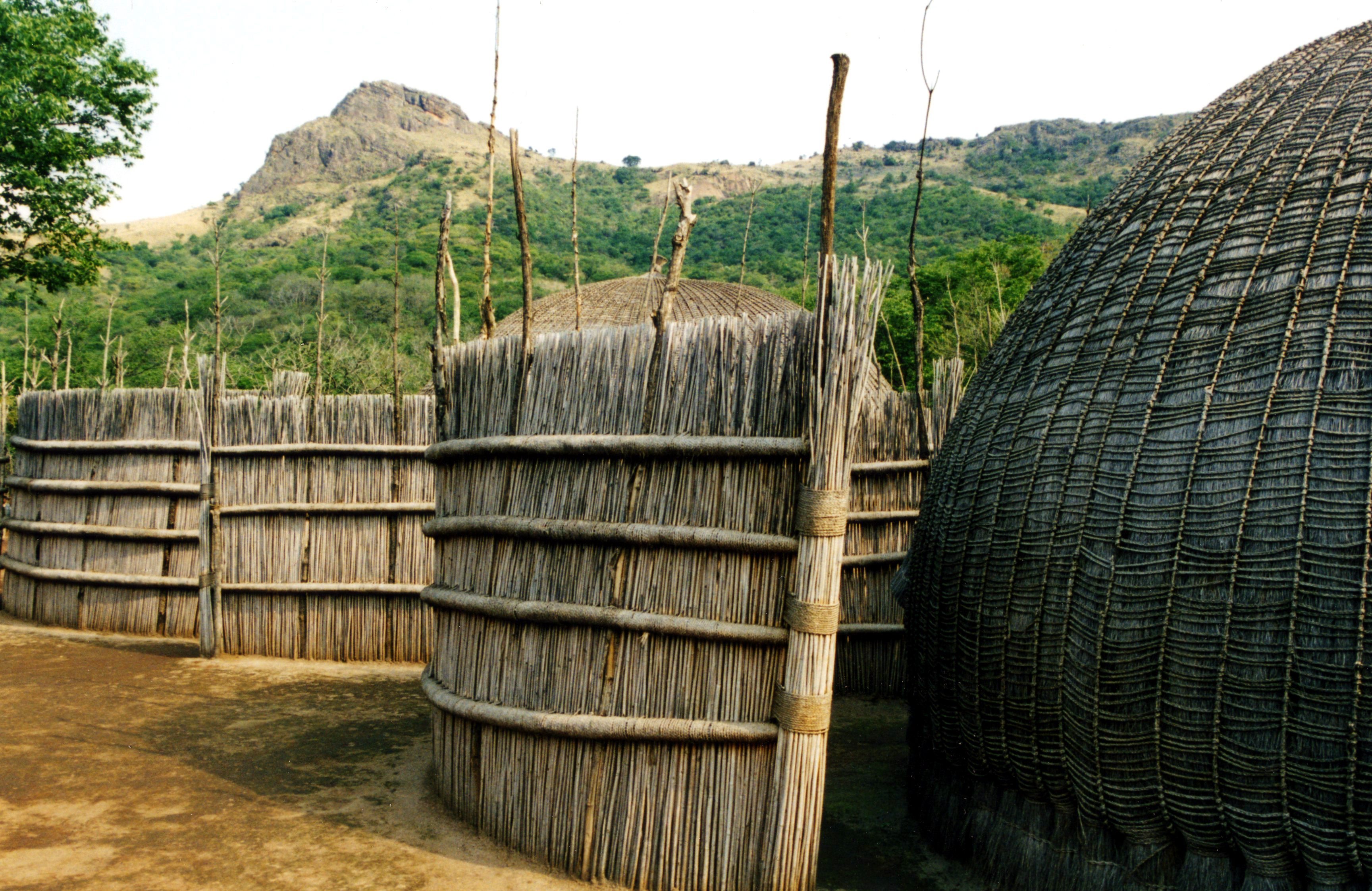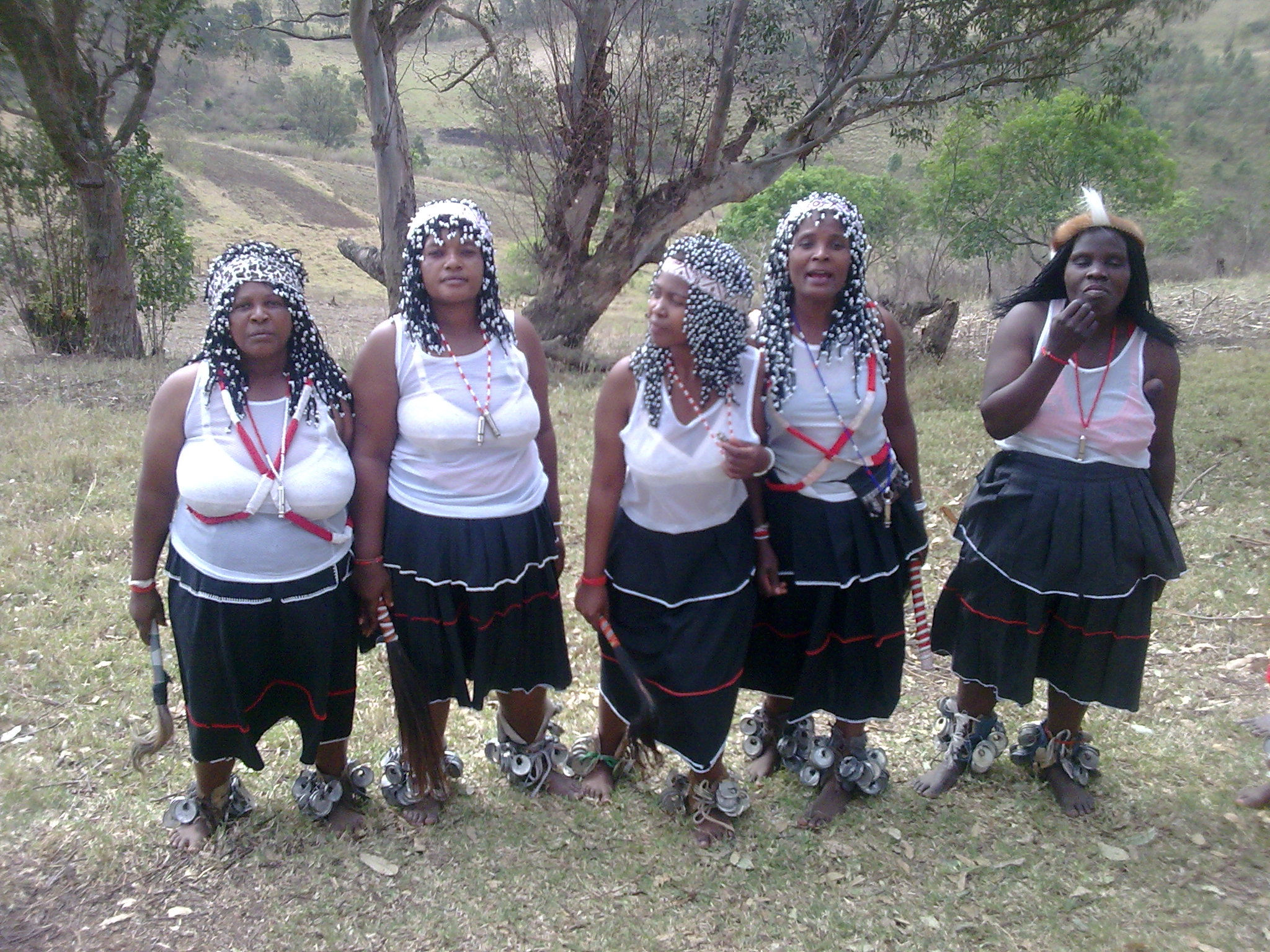|
Swazi Culture
Swazi culture is the way of life and customs of the Swazi people through various historical stages. The culture of Swazi people involves music, food, religion, architecture, and kinship, among many other things. The Swazi people are composed of various Nguni clans who speak the Nguni language siSwati. These people mostly reside in Eswatini and South Africa. Presently, Swazi people may also include citizens of Eswatini. In Eswatini, one of the most visible features of cultural identity is the traditional political structure of the nation and the home. In the national level, the Ngwenyama (the "Lion", or King) is considered the head of the nation alongside the Ndlovukati (the "She-Elephant", or Queen Mother) who is the spiritual leader of the nation. National cultural events often involve the Ngwenyama or Ndlovukati. At home, the patriarch of the family is the head and in the past, often practiced polygamy. This headman, usually referred to as ''umnumzane'' is central to all activitie ... [...More Info...] [...Related Items...] OR: [Wikipedia] [Google] [Baidu] |
Swazi People
The Swazi or Swati ( Swati: ''Emaswati'', singular ''Liswati'') are a Bantu ethnic group native to Southern Africa, inhabiting Eswatini, a sovereign kingdom in Southern Africa. EmaSwati are part of the Nguni-language speaking peoples whose origins can be traced through archaeology to East Africa where similar traditions, beliefs and cultural practices are found. The Swati people and the Kingdom of Eswatini today are named after Mswati II, who became king in 1839 after the death of his father King Sobhuza who strategically defeated the British who occupied Eswatini. Eswatini was a region first occupied by the San people and the current Swazis migrated from north East Africa through to Mozambique and eventually settled in Eswatini in the 15th century. Their royal lineage can be traced to a chief named Dlamini I; this is still the royal clan name. About three-quarters of the clan groups are Nguni; the remainder are Sotho, Tsonga, others North East African and San descendants. The ... [...More Info...] [...Related Items...] OR: [Wikipedia] [Google] [Baidu] |
Inyanga
Traditional healers of Southern Africa are practitioners of traditional African medicine in Southern Africa. They fulfill different social and political roles in the community, including divination, healing physical, emotional and spiritual illnesses, directing birth or death rituals, finding lost cattle, protecting warriors, counteracting witchcraft, and narrating the history, cosmology, and concepts of their tradition. There are two main types of traditional healers within the Nguni, Sotho-Tswana, and Tsonga societies of Southern Africa: the diviner (''sangoma''), and the herbalist (''inyanga''). These healers are effectively South African shamans who are highly revered and respected in a society where illness is thought to be caused by witchcraft, pollution (contact with impure objects or occurrences) or through neglect of the ancestors. It is estimated that there are as many as 200,000 traditional healers in South Africa compared to 25,000 doctors trained in bio-medic ... [...More Info...] [...Related Items...] OR: [Wikipedia] [Google] [Baidu] |
Music Of Eswatini
The music of Eswatini is composed of both ethnic Swazi music and varieties of folk music as well as modern genres such as rock, pop and hip hop, which has been popular in Eswatini since headed by bands such as Vamoose. The popularity of hip hop in South Africa, which shares a border with Eswatini, has also helped popularize it. Two major festivals in the country are Incwala and Umhlanga.Maps of World – Swaziland Retrieved 2013-10-25. The former takes place in December while the latter takes place in August. Umhlanga is known for its dance, performed exclusively by women, and its 5-day ceremony, which involves reed-cutting. Traditional instruments used include: the horn, |
Outline Of Eswatini
The following outline is provided as an overview of and topical guide to Eswatini: Eswatini (officially the Kingdom of Eswatini) – is a small, landlocked, sovereign country located in Southern Africa, bordered by South Africa on three sides except to the east, where it borders Mozambique. The country, inhabited primarily by Bantu-speaking Swazi people, is named after the 19th-century king Mswati II, from whom the people also take their name. General reference * Pronunciation: * Common English country name: Eswatini * Official English country name: The Kingdom of Eswatini * Common endonym(s): eSwatini * Official endonym(s): The Kingdom of Eswatini * Adjectival(s): Swazi *Demonym(s): Swazi * ISO country codes: SZ, SWZ, 748 * ISO region codes: See ISO 3166-2:SZ * Country code top-level domain: .sz Geography of Eswatini Geography of Eswatini * Eswatini is: a landlocked country * Location: ** Eastern Hemisphere and Southern Hemisphere ** Africa *** So ... [...More Info...] [...Related Items...] OR: [Wikipedia] [Google] [Baidu] |
2010 Umhlanga
1 (one, unit, unity) is a number representing a single or the only entity. 1 is also a numerical digit and represents a single unit of counting or measurement. For example, a line segment of ''unit length'' is a line segment of length 1. In conventions of sign where zero is considered neither positive nor negative, 1 is the first and smallest positive integer. It is also sometimes considered the first of the infinite sequence of natural numbers, followed by 2, although by other definitions 1 is the second natural number, following 0. The fundamental mathematical property of 1 is to be a multiplicative identity, meaning that any number multiplied by 1 equals the same number. Most if not all properties of 1 can be deduced from this. In advanced mathematics, a multiplicative identity is often denoted 1, even if it is not a number. 1 is by convention not considered a prime number; this was not universally accepted until the mid-20th century. Additionally, 1 is the s ... [...More Info...] [...Related Items...] OR: [Wikipedia] [Google] [Baidu] |
Princess Sikhanyiso Dlamini Of Eswatini
Princess Sikhanyiso Dlamini (; born 1 September 1987) is a Swazi princess and politician. She is the eldest daughter of King Mswati III of Eswatini, and is the country's current Minister of Information and Communication Technology. Early life and education Sikhanyiso Dlamini was educated in Britain at a mixed private school, St Edmund's College, Ware, in Hertfordshire, where she was in Challoner House. She continued to study drama at Biola University in California. In 2012, Princess Sikhanyiso graduated from the University of Sydney with a master's degree in digital communication. While in Australia, she resided in Glebe with her palace-appointed aide, Yemma Sholo. She is the first child of Inkhosikati LaMbikiza and has more than two hundred blood-related uncles and aunts through her grandfather, King Sobhuza II, who had seventy wives and two hundred and one children. She is also one of his one thousand grandchildren in the Royal Swazi House of Dlamini. She is the first-born of ... [...More Info...] [...Related Items...] OR: [Wikipedia] [Google] [Baidu] |
Incwala
Incwala () is the main ritual of kingship in the Eswatini, Kingdom of Eswatini. This is a national event that takes place during the summer solstice. The main participant in incwala is the King of Eswatini; when there is no king there is no incwala. Incwala takes place over a period of time of about a month, starting with the small incwala, ''incwala lencane'', and culminating in the big incwala, ''incwala lenkhulu''. A number of activities—such as lusekwane, kuhlamahlama, and umdvutjulwa—mark the key events of this age old tradition. Main personnel The incwala ritual is controlled by national priests known as ''Bemanti'' (people of the water), or ''Belwandle'' (people of the sea), because they fetch river- and sea-water to strengthen the King. The leader of these men is a chief of the Ndwandwe clan who is assisted by other male relatives. Another leader is of the Ndwandwe clan from the Elwandle royal village. These men go and fetch water and herbs respectively in the natio ... [...More Info...] [...Related Items...] OR: [Wikipedia] [Google] [Baidu] |
Incwala Warrior
Incwala () is the main ritual of kingship in the Kingdom of Eswatini. This is a national event that takes place during the summer solstice. The main participant in incwala is the King of Eswatini; when there is no king there is no incwala. Incwala takes place over a period of time of about a month, starting with the small incwala, ''incwala lencane'', and culminating in the big incwala, ''incwala lenkhulu''. A number of activities—such as lusekwane, kuhlamahlama, and umdvutjulwa—mark the key events of this age old tradition. Main personnel The incwala ritual is controlled by national priests known as ''Bemanti'' (people of the water), or ''Belwandle'' (people of the sea), because they fetch river- and sea-water to strengthen the King. The leader of these men is a chief of the Ndwandwe clan who is assisted by other male relatives. Another leader is of the Ndwandwe clan from the Elwandle royal village. These men go and fetch water and herbs respectively in the nation's rivers ... [...More Info...] [...Related Items...] OR: [Wikipedia] [Google] [Baidu] |
Swazi Warriors
Swazi may refer to: * Swazi people, a people of southeastern Africa * Swazi language * Eswatini Eswatini ( ; ss, eSwatini ), officially the Kingdom of Eswatini and formerly named Swaziland ( ; officially renamed in 2018), is a landlocked country in Southern Africa. It is bordered by Mozambique to its northeast and South Africa to its no ... (former name ''Swaziland''), or a citizen thereof {{disambiguation Language and nationality disambiguation pages ... [...More Info...] [...Related Items...] OR: [Wikipedia] [Google] [Baidu] |
SiSwati
The Swazi or siSwati language is a Bantu language of the Nguni group spoken in Eswatini and South Africa by the Swati people. The number of speakers is estimated to be in the region of 2.4 million. The language is taught in Eswatini and some South African schools in Mpumalanga, particularly former KaNgwane areas. Siswati is an official language of Eswatini (along with English), and is also one of the eleven official languages of South Africa. The official term is "siSwati" among native speakers; in English, Zulu, Ndebele or Xhosa it may be referred to as ''Swazi''. Siswati is most closely related to the other Tekela languages, like Phuthi and Northern Transvaal (Sumayela) Ndebele, but is also very close to the Zunda languages: Zulu, Southern Ndebele, Northern Ndebele, and Xhosa. Dialects Siswati spoken in Eswatini can be divided into four dialects corresponding to the four administrative regions of the country: Hhohho, Lubombo, Manzini, and Shiselweni. Siswati has at ... [...More Info...] [...Related Items...] OR: [Wikipedia] [Google] [Baidu] |






